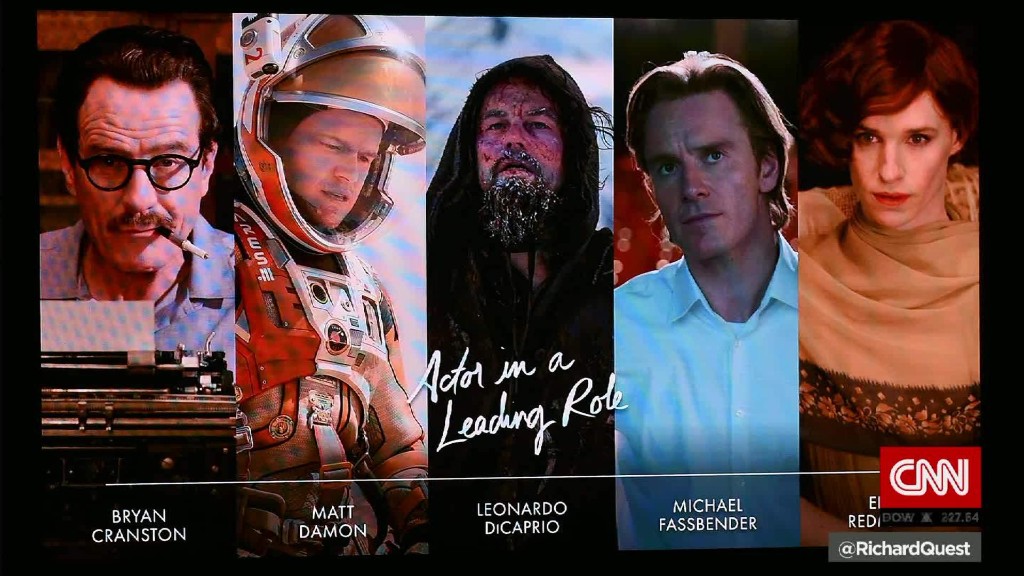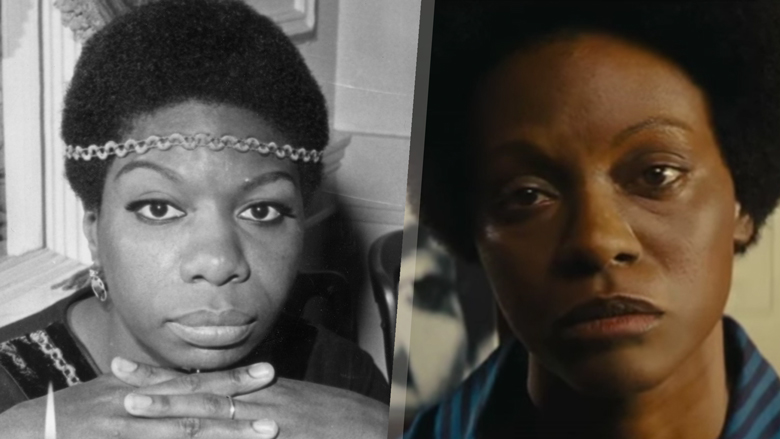
The casting of Zoe Saldana to play civil rights icon and singer Nina Simone in an upcoming biopic has reignited a debate about race and skin tone in Hollywood that goes beyond just black and white.
Criticism about the choice to cast the lighter skinned Afro-Latina actress to play Simone has raged since it was first announced four years ago. In a trailer released this week, Saldana is shown wearing makeup to darken her skin and a prosthetic nose that broadens her nose to make her look like Simone.
"She looks grotesque to me," said Yaba Blay, a political science professor at North Carolina Central University and the author of the book (1)ne Drop: Conversations on Skin Color, Race, and Identity. "This flies in the face of who Nina Simone was. She was very black and she saw color."
For Blay, Saldana's look harkened back to 19th century minstrel performances where white actors wore blackface and portrayed blacks as "sub-human" caricatures of blackness. In this role, Saldana "looks like something that was created, she doesn't look human to me," said Blay.
Related: Zoe Saldana, Nine Simone and the painful history of blackface
Whether Saldana -- who is of Dominican and Puerto Rican heritage -- is the right ethnicity to play Simone has also been a major point of contention in the debate, Blay said. "I think there are folks who feel like Nina was a black American and maybe she should have been played by a black American."
Raquel Coombs, the vice president of communications for the NAACP, which nominated Saldana for an Image Award this year, said that the organization supported "people of all hues to have opportunities within the industry."
But it was the "extra steps" taken to make Saldana look like Simone that were of most concern, Coombs said. "We've long been opposed to anyone using blackface and putting on prosthetics to make someone appear blacker. Someone should have known that would have hit those pressure points in the African-American community."
Kelli Moore, an assistant professor of media, culture and communication at New York University, said "the anxieties and resentments that are within the black community are a result of colorism" or the notion that lighter skinned blacks with straighter hair and Anglicized features have historically been treated better, both inside and outside of black communities. Using a darker skinned actress to play Simone would have made the film "a black film" Moore said. According to Moore, Saldana's "angular multiracial face is a commodity and it will bring different kinds of viewers to this theater," namely non-black audiences.
A 2014 study of Latinos in media published by Columbia University found that between 2010 to 2013, Afro-Latino performers represented 18.2% of Latino film actors and 16.7% of Latino TV actors, "although they were generally confined to supporting roles in both media."

Jamal Joseph, a former Black Panther and a film professor at Columbia University said the casting decision recalls "The brown paper bag test" in black communities, the painful cultural expectation that those with skin lighter than a brown paper bag are more socially accepted than those whose skin is darker. "It was a real thing in our community and in some ways culturally it still is," Joseph said.
Saldana's casting is "a win for an Afro Latina but it doesn't consider the nuanced issues that we are dealing with in our community," said Joseph, who is black and Cuban.
For Blay, Moore and Joseph, the criticism lobbed at Saldana for taking the role also had sexist undertones. 'We have a particular expectation of black women to protect our community and we don't have the same expectation for black men," said Blay who questioned why there was no outrage directed toward David Oyelowo, Saldana's co-star in the film and one of its executive producers.
"The people we should be upset with should be the casting director, the writer," said Moore of NYU. "Even in this controversy, [Saldana] is made to bear the weight for that."
Related: #NotYourMule race debate ignites on Twitter following Oscars
In a 2015 interview with InStyle magazine, Saldana said she initially didn't think she was the right person to play Simone. "I didn't think I was right for the part, and I know a lot of people will agree, but then again, I don't think Elizabeth Taylor was right for Cleopatra either," Saldana told InStyle.
But she changed her mind. "An artist is colorless, genderless ... It's more complex than just 'Oh, you chose the Halle Berry look-alike to play a dark, strikingly beautiful, iconic black woman.' The truth is, they chose an artist who was willing to sacrifice herself. We needed to tell her story because she deserves it," Saldana added.
In a statement, Robert L. Johnson, the founder of BET and chairman and founder of RLJ Entertainment, which will distribute "Nina" described Saldana's performance of Simone "an exceptional and mesmerizing tribute."
Regarding Saldana's casting, Johnson said, "The most important thing is that creativity or quality of performance should never be judged on the basis of color, or ethnicity, or physical likeness. Quality entertainment should be measured by the sheer force of creativity and the commitment that an actor or actress brings to the performance."


